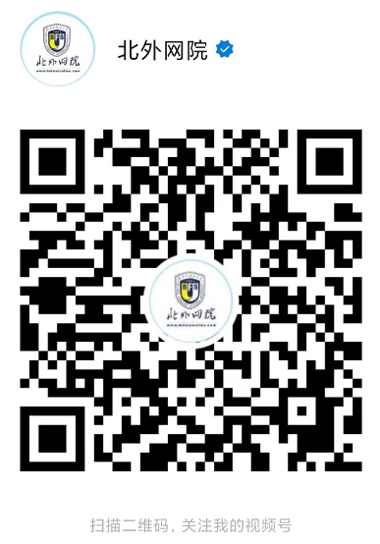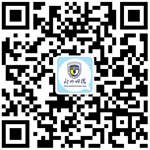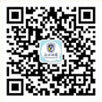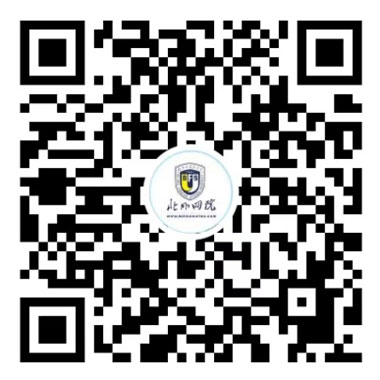IUP-BFSU 教育技术专业硕士学分豁免项目招生简章
美国宾夕法尼亚州印第安纳大学(Indiana University of Pennsylvania, IUP)建立于1875年,是一所历史悠久的美国州立大学,同时也是宾夕法尼亚高等教育系统中最大的学校。该校2022年入选U.S.News & World Report“最佳国立大学”和“社会流动性表现最佳大学”榜单,多个硕士项目被U.S.News & World Report评为“全美最佳在线课程”。教育技术专业硕士(Education, Training, and Instructional Technology,ETIT)项目适合希望在工商业、PK-21教育系统、高等教育、医疗保健和政府组织中从事教学设计、教育技术,远程教育,培训,媒体开发等工作的学生入读。
北京外国语大学(简称“北外”)是教育部直属、首批“211工程”高校、“985”优势学科创新平台高校、首批“双一流”建设高校,是目前我国高等院校中历史最悠久、开设语种最多、办学层次齐全的外国语大学。为促进人工智能与教育教学的深度融合,积极探索新文科背景下复合型人才培养模式,北外教育技术学专业硕士研究生,发挥学校外语人才培养的优势和特色,结合其在语言教学与研究方面的优势,学院重点参与建设的北京外国语大学人工智能与人类语言重点实验室于2022年开始开设计算机辅助外语教学与智慧教学环境设计两个研究方向,并招收攻读教育技术学硕士学位研究生。北外坚持高端引领、整体推进的国际化办学思路,与宾夕法尼亚州印第安纳大学合作开展教育技术学专业(ETIT)学分豁免硕士项目。项目承办单位为北京外国语大学网络教育学院。
一、招生对象
本科应往届毕业生。
二、学习形式及课程设置
北外学习4个月(1学期,修满9学分)+ 宾夕法尼亚州印第安纳大学1年(3学期,修满21学分)。
1.北外学习阶段
学习周期:4个月;每年9月至12月,或每年3月至6月
学习形式:北外学习或线上学习
课程设置:3门必修课程,共9学分
- Instructional Design
- Technology Enhanced Foreign Language Education
- Research Methodology of Applied Linguistics
考核方式:形成性考核
2.宾夕法尼亚州印第安纳大学学习阶段
学习周期:1年(3个学期)
学习形式:宾夕法尼亚州印第安纳大学学习
课程设置:6门必修课,实习或1门选修课
- ETIT 610 - Learning Management Systems
- ETIT 617 - Education Technology
- ETIT 622 - Program and Project Planning
- ETIT 624 - Designing Accessible and Inclusive Instruction
- ETIT 630 - Digital Pedagogy
- ETIT 700 - Advanced Instructional Design
- ETIT Internship or elective
(课程介绍请见附件)
三、硕士学位
完成两个阶段课程学习、修满学分,可获得美国宾夕法尼亚州印第安纳大学的教育、培训和教学技术专业硕士(Master of Arts in Education, Training, and Instructional Technology)。
四、申请条件
1.已取得(或在入学前获得)教育、外语专业或相关学科本科学位。
2.官方语言要求(达成以下其一即可):
(1)雅思成绩不低于6分;
(2)托福iBT 76分及以上;
(3)剑桥英语证书Cambridge English Qualifications 179分及以上;
(4)多邻国英语测试 Duolingo English Test 110分及以上;
(5)培生PTE 53分及以上;
(6)大学英语四级568分及以上;
(7)大学英语六级443分及以上;
(8)专业英语四级或八级通过。
五、学费
- 国内费用:48,000元人民币
- 国外费用:568美元/学分(项目优惠学分价格。相当于正常申请国际学生学费的73%)
六、申请材料
1.报名表
2.身份证
3.毕业证书原件、复印件
4.语言成绩
七、报名咨询
咨询地址:北京外国语大学网络教育学院(北京市海淀区西三环北路19号北外国际大厦701)
咨询电话:010-88811038
报名邮箱:degree@beiwaionline.com
附件:课程介绍
(一)北外教授课程
Technology-Enhanced Foreign Language Education:On successful completion of the course, students should be able to: acquire a general understanding of CALL / MALL history, theories, resources and environments; integrate technology into their teaching and assessment practice; become aware of key issues in CALL / MALL such as teacher education and learner training; understand current development and future trends in CALL and MALL research; design and undertake small-scale CALL and MALL research projects.
Instructional Design is designed to teach students the theory and methodology of designing a course, so that through the course they can acquire basic course design skills for the discipline they aspire to pursue in the future. This course is taught primarily through instructor-led lectures and collaborative group inquiry and sharing.
Research Methodology of Applied Linguistics introduces the fundamental concepts of quantitative research design and statistics in the setting of applied linguistics, with emphasis on three issues: measurement theory, analysis of variance, and analysis of linear relationship. By integrating the application of SPSS, this course expands beyond basic concepts of statistical techniques to include the operational skills on doing research in applied linguistics. The dual-objective of this course is to provide a sound conceptual understanding on statistical issues, and to provide hands-on experience with SPSS.
(二)宾夕法尼亚州印第安纳大学教授课程
ETIT 610 Learning Management Systems: Examines the practical use of computers as tools for developing effectiveness and efficiency in training and education through Learning Management Systems (LMS). Learners explore the use of the computer in school and non-school training and education settings, conduct critical evaluation of LMS and computer-based instructional/training materials, and develop strategies for integrating computing into the total learning environment. Current research in the area of instructional computing and its implications for training and education are also discussed.
ETIT 617 Education Technology: Explores the use of education technology to enhance effectiveness and efficiency in developing teaching and training. Learners explore the use of technologies used in school and non-school teaching or training settings, conduct critical evaluation of technologies currently used in industry (both educational and corporate), and integrate these technologies into the teaching/training and development environment. Current research in educational technology and its practical implications for teaching and training are also discussed.
ETIT 622 Program and Project Planning and Evaluation: Provides a hands-on approach to planning education and training programs and instructional design projects. ETIT 622 is a knowledge- and skill-building course designed for present and future instructional designers, trainers, and adult and community education professionals. This how-to course examines concepts and practices relevant to the development of education and training programs and instructional design projects in a variety of settings
ETIT 624 Designing Accessible and Inclusive Instruction: Provides training on accessibility practices and demonstrates techniques for creating instruction accessible and inclusive for learners with disabilities. This course will provide students with foundational knowledge of disability laws, tips for creating accessible learning materials, and introduce the principles of Universal Design for Instruction.
ETIT 630 Digital Pedagogy: Examines effective teaching using digital tools across a variety of learning environments. Topics include preparing to teach using digital technologies, basic considerations of synchronous and asynchronous content delivery, strategies for teaching and assessing learners, and issues related to special needs and inclusion that arise in digital learning environments.
ETIT 700 Advanced Instructional Design: Provides an in-depth analysis of the field of instructional design and application of instructional technology in various learning environments. This course will present students with the opportunity to solve instructional design problems and to develop an original learning activity that incorporates advanced principles of instructional design. The purpose of this course is to provide students with a theoretical and practical understanding of how to design engaging and meaningful learning environments using a variety of technologies and methods to achieve learning outcomes. Students will be introduced to and have the opportunity to further explore topics and current trends and issues in instructional design, including theories, models, evaluation, program and project management, accessibility and diversity, and professional ethics.
| 相关文章 |
| 没有相关信息 |






